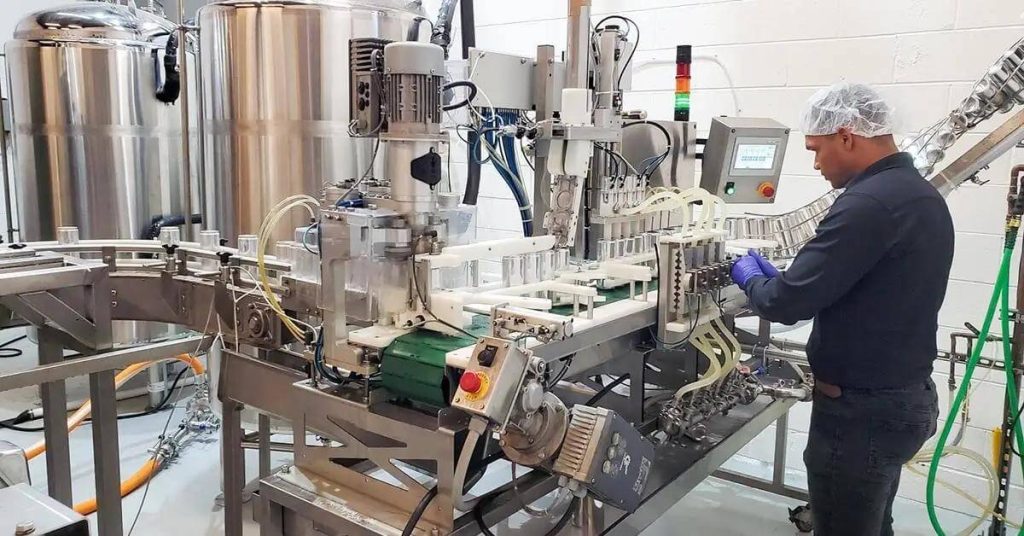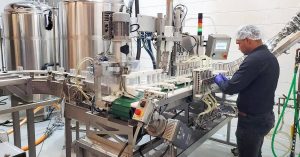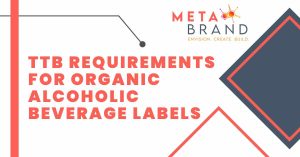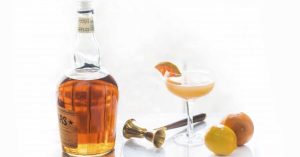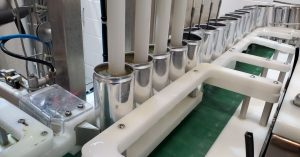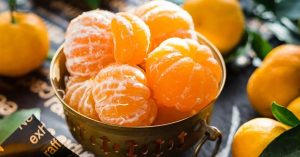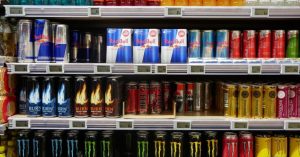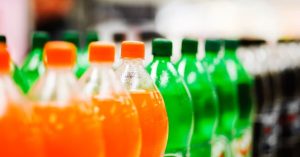Lets get Started!
Starting your own beverage company can be exhilarating. You have spent years working on your product idea and may finally be able to make it a reality. Becoming an entrepreneur allows you to follow your passion, harness everything you’ve learned, and create a successful business that continues to grow.
It takes a lot of work to get there. You need to understand where the market is now and where it’s headed.
You need investors to believe in your idea and all the resources to start making your product. The right approach to marketing and sales will help you connect with consumers.
What specific steps are involved when you want to go down this path? This guide will walk through how to start a beverage company and eight specific steps you should take.
Starting a small business can be an uncertain venture, full of challenges and overwhelming decisions. It can also lead to lasting financial success and eventually becoming the head of a thriving company. Here are some benefits to starting your own beverage business:
Why work for someone else when you can run the show? Entrepreneurs can create the business they want, including assembling a great team and making a schedule that helps you balance work and personal life.
You probably want to enter the world of beverages because you know something about the industry or products. A great thing about the drink world is that consumer trends are a huge part of business success, and your company can cash in on these trends, especially when you can predict what’s about to get hot.
Beverages are consumer products that can earn you prestige and adoration. People tend to fall in love with the most popular brands and can remain loyal to them for an entire lifetime. Hitting on that brand can also be incredibly lucrative, of course.
There are pros and cons to every career path. Starting a beverage company can be tricky and isn’t for everyone. Those with a commitment to the process and an entrepreneurial mindset can find lots of success going this route.
 Benefits of Starting a Beverage Company
Benefits of Starting a Beverage Company
Starting a small business can be an uncertain venture, full of challenges and overwhelming decisions. It can also lead to lasting financial success and eventually becoming the head of a thriving company. Here are some benefits to starting your own beverage business:
 Greater Flexibility
Greater Flexibility
Why work for someone else when you can run the show? Entrepreneurs can create the business they want, including assembling a great team and making a schedule that helps you balance work and personal life.
 Use Your Industry Knowledge
Use Your Industry Knowledge
You probably want to enter the world of beverages because you know something about the industry or products. A great thing about the drink world is that consumer trends are a huge part of business success, and your company can cash in on these trends, especially when you can predict what’s about to get hot.
 Develop Products People Love
Develop Products People Love
Beverages are consumer products that can earn you prestige and adoration. People tend to fall in love with the most popular brands and can remain loyal to them for an entire lifetime. Hitting on that brand can also be incredibly lucrative, of course.
There are pros and cons to every career path. Starting a beverage company can be tricky and isn’t for everyone. Those with a commitment to the process and an entrepreneurial mindset can find lots of success going this route.
8 Steps to Start a Beverage Company
You won’t get anywhere without the right road map. Planning takes creating a winning strategy and nailing down every detail, from business model to investments to launch. Follow these eight steps to start your own beverage business:1. Perfect Your Beverage Vision
Many beverage brands start with a great idea for a tasty product. It’s crucial that they perfect the concept if they intend to build a company around it. This means meeting with industry experts who will help you formulate your drink and ensure there’s demand for your product in the current beverage market.The Importance of Market Research in Developing a Drink Product
When venturing into the beverage industry, thorough market research is the cornerstone that can determine the success or failure of your drink product. Here’s why it’s indispensable:- Understanding the Landscape Market research provides valuable insights into the current industry dynamics. By evaluating the competition, you can identify key players who influence market trends. This understanding is crucial to differentiate your product and seize opportunities that others might overlook.
- Identifying Your Niche With a comprehensive analysis, you can identify niche segments within the market that are ripe for innovation. This helps in crafting a unique product that meets specific consumer needs, setting you apart from generic offerings.
- Assessing Market Demand Investigating market size and growth trends offers a realistic view of consumer demand. This ensures that your product launch aligns with customer expectations, reducing the risk of investing in a saturated or declining market.
- Resource Allocation Armed with detailed insights, you can make informed decisions about resource allocation. From production and distribution to marketing efforts, understanding where to channel resources maximizes efficiency and enhances the chances of success.
- Strategizing Growth Market research not only prepares you for the initial launch but also lays the groundwork for long-term growth strategies. Understanding market share dynamics helps in planning expansion, scaling up operations, or diversifying your product line.
2. Creating the Right Business Structure
You need to understand the differences between potential business structures. A sole proprietorship, for instance, maybe appropriate at first if you’re the only person running the business. Partnerships, LLCs, or corporations may make sense depending on who’s involved and your goals. Make sure to talk with a legal professional or accountant about the best option for you.3. Define Your Beverage Product Category
The drink market has several big categories, so be sure you know where your products fit in. Standard industry segments include alcoholic beverages, soda, coffee and ice tea, juice, energy drinks, health drinks, sports drink, sparkling water, and many more. Getting specific will help you create the right branding later and identify your target audience.How to Differentiate Your Beverage from Competitors
Launching a new beverage in a crowded market requires clear differentiation, setting your product apart from the rest. Here’s how you can achieve this:- Identify Unique Ingredients and Flavors Uncover unique ingredients or flavor combinations that aren’t common in current offerings. Consider exotic fruits, rare herbs, or innovative flavor fusions that will excite consumers’ palates.
- Emphasize Health Benefits With a growing trend towards health-conscious choices, highlighting any nutritional advantages your drink provides can be pivotal. Whether it’s low-calorie content, added vitamins, or natural energy boosters, these features can sway health-focused consumers.
- Tell Your Story A compelling backstory adds depth. Maybe your drink’s origin is inspired by a family recipe, a cultural tradition, or a personal journey. Authentic storytelling connects with customers on a personal level, giving them more reasons to choose your brand.
- Focus on Packaging and Design Eye-catching packaging can make a lasting first impression. Use bold colors, unique shapes, or sustainable materials to make your beverage stand out on the shelf, capturing attention quickly in a competitive space.
- Leverage Sustainability With eco-friendly practices becoming increasingly important, demonstrate your commitment to sustainability. This could mean using biodegradable packaging, minimizing carbon footprints during production, or supporting environmental causes.
- Research Competitors Analyze other drinks in your category to spot gaps in the market. Determine what competitors like Coke, Pepsi, or niche brands might lack, and capitalize on those areas with a product offering that fills the void.
- Craft a Memorable Brand Experience Beyond just the drink, provide an experience that resonates. This could be through interactive marketing techniques, collaborations with influencers, or community engagement activities that foster customer loyalty and brand advocacy.
Effective Sales Strategies to Boost Beverage Sales
Increasing beverage sales requires a well-rounded approach that encompasses several key strategies. Here’s how you can effectively enhance your sales outcomes:- Direct Sales vs. Team Effort Decide whether to handle sales in-house or hire a dedicated sales team. By making direct contact with potential customers or employing sales personnel to reach out to markets, you can explore different avenues for engagement.
- Targeted Advertisement Campaigns Invest in advertising that aligns with your target audience. Whether through social media platforms like Instagram and Facebook or traditional media, understanding where your potential buyers are can significantly influence the success of your campaigns.
- Cold Calling and Market Outreach Engage in cold calling to reach untouched segments of the market. Training your sales personnel to approach potential buyers with scripts tailored to their needs can open new revenue streams.
- Promotions and Special Offers Create limited-time offers or discounts to entice buyers. These promotions can be seasonally adjusted or based on customer purchasing behavior to stimulate demand during specific periods.
- Partnerships and Collaborations Form alliances with local businesses or complementary product brands. This can enhance your market presence and create opportunities for cross-promotions.
- Leverage Data Analytics Utilize data to refine your sales strategies. By analyzing purchasing patterns, customer preferences, and market trends, you can tailor your offerings to align with consumer needs.
5. Get Your Beverage Branding Just Right
Ask yourself what consumers really want or need, and make sure your branding aligns with those desires. This branding drives your design goals and marketing tactics, from logo to setting core values to the marketing platforms you use. Your brand design and tone should be aligned across all your marketing channels, website included.How Does Packaging Influence the Branding of a Beverage?
Packaging isn’t just a vessel for your beverage; it’s a powerful extension of your brand identity.- Enhancing Brand Recognition
- Practicality Meets Aesthetics
- Tailoring to Your Audience
- Conveying Brand Values
6. Develop a Beverage Marketing Approach
You must pay attention to which outlets are best to connect with your customers. What social media platforms do they use? What kind of content do they like? How can you offer new ways to engage them? What are your competitors doing?Why is an Online Presence Crucial for a Beverage Company?
An online presence is no longer optional for beverage companies; it’s a necessity. Here’s why: 1. Broaden Your Reach:- The internet expands your market far beyond local borders.
- With platforms like social media, you can introduce your beverages to audiences worldwide.
- A professional website and active social media channels instill confidence.
- Consumers often associate a strong online presence with trustworthiness and quality.
- Digital platforms like Instagram and Facebook allow tailored marketing strategies.
- Engage directly with consumers, offering promotions or launching new products effectively.
- Your website can house everything from your brand’s story to detailed product descriptions.
- Direct communication channels, such as chat functions or contact forms, enable swift interaction.
- Gain valuable insights into consumer behavior and preferences through online analytics.
- Use this real-time data to refine your product offerings and marketing tactics.
- Unlike traditional business hours, online platforms operate 24/7.
- Customers can explore your offerings and make purchases any time they like.
- Engage with your audience by regularly updating your social media and blog posts.
- Create a community around your brand by encouraging reviews and sharing user-generated content.


